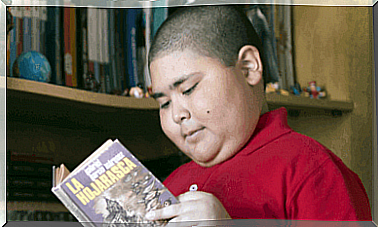Growing Up With Emotionally Absent Parents

There may be several reasons why some parents choose to leave their children. H vor many repressed emotions carry these children as a result of their emotionally absent parents? Why, for example, does a mother choose to invent the most incredible lies about the father who has left them, just to protect the children’s feelings?
Emotionally absent parents do not contribute anything other than their physical presence to their children’s upbringing. They leave all authority, emotional support and responsibility to the other parent. They behave like “indirect” parents and inflict a psychological absence on their children that can harm them on an emotional level.
These parents harm their children by not establishing fixed rules and routines. Growing up with a father or mother who, despite being present, is unable to give either love or attention, allows children to learn to build their world with an empty heart.
What if they want to escape from me?
A preschool teacher one day discovered that a girl in her class was unusually sad and somehow lost in deep thought.
The little girl answered; “My parents. Dad works all day so that I can have food on my plate when I get home and so that I can go to one of the best schools in town. He often works overtime so that one day I can go to university. And my mother spends all day shopping, cooking and doing housework so that I do not have to worry about anything ”.

The consequences of growing up with emotionally absent parents
Children who grow up with emotionally absent parents are far more likely to develop behavioral problems than other children. These are problems that often act as a form of protection mechanisms that children use to protect their deepest feelings. It is often about insecurity, fear and the feeling of being abandoned.
This form of upbringing often leads to a general form of emotional detachment that makes the child insecure when it comes to establishing new relationships. It also lays the groundwork for an essential lack of trust. The idea of forging emotional bonds with others is therefore often accompanied by the fear of being let down, of not being recognized or even worse, of being ignored.
All of these shortcomings can turn children into emotionally dependent adults who cannot end harmful relationships for fear of loneliness or being abandoned. They prefer to cling to people rather than risk losing them.
Children who grow up with emotionally absent parents tend to establish toxic relationships. In their desperate search for love or a mother or father figure, they risk ending up in unhealthy social contexts that they do not know how to get out of.
In addition, they tend to feel a certain hostility towards others, but also towards themselves, as they strive to make contact. They are often in a defensive position. This is without a doubt one of the many consequences of having emotionally absent parents.
You’re here, but it’s like you’re a thousand miles away
Even if some parents have no choice but to be away from home and their children , it is still entirely possible to establish the essential emotional contact. It is important that parents dedicate their free time to their children. For the relationship between a child and its parents is the most important relationship a person has during his life.

We must be able to put behind us all thoughts about bills, purchases and other practical things and instead focus on raising our children in the right way. The most important thing is to be present. Therefore, take advantage of the moments you share with your children, whether it is when you eat dinner or play together. Use them to strengthen your emotional connection.
There are a number of activities we can do with our children that are neither particularly time-consuming nor energy-intensive. For example, we can teach them to cook, go for a walk or join them in the park. It all depends on the quality of the time you spend with your children and the contact you establish with them.









